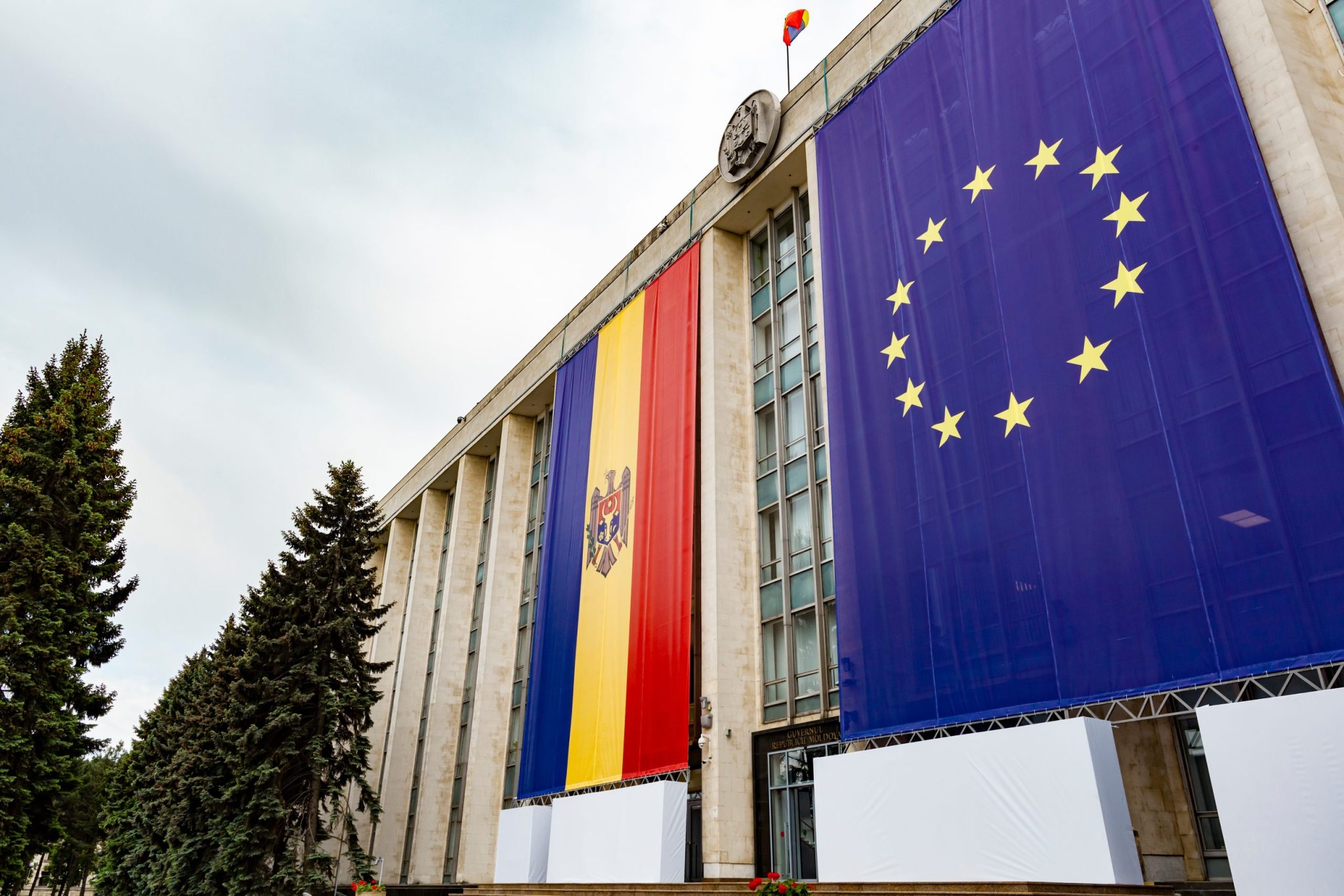Few national contexts offer a more disturbing picture of Russian malign foreign interference than Moldova’s. As the country readies for critical elections on October 20, it also faces a barrage of Russian hybrid attacks of remarkable scale and intensity against its democratic core and European future. The stakes for defending against and enduring this onslaught could not be higher for the country and Europe as a whole.
The Strategy
The consequential nature of the elections, in which Moldovans will elect a president and decide via referendum if they should align with the EU, explains much about the country’s emergence as a prized target for Russian hybrid offensives. On the ballot is not only the incumbent, strongly pro-Western President Maia Sandu, who is seeking a second term, but also the potential of enshrining EU membership as a strategic goal in the country’s constitution. The latter could frustrate any future efforts to derail that process. Moscow, unsurprisingly, sees this and a Sandu reelection as antithetical to its interests. The Kremlin aims to reverse trends that have seen Chișinău gradually weaken Russian influence. And while the two pivotal election issues are at the epicenter of Moscow’s malign operations, its targeting Moldova long precedes and will likely long follow the vote.
Indeed, Russian hybrid attacks against Moldova have sharply increased since at least spring 2022, when Moscow’s full-scale invasion of Ukraine again made its nefarious intentions in the region clear. A first warning of Russian aims and capabilities was its intervention in Moldova’s 2023 local elections. The country’s Information and Security Service reported that Moscow invested approximately $55 million to influence the vote, deploying illegal financing and disinformation tactics to sway the outcome, helping pro-Russian candidates win, and deepening political divisions in key cities such as Bălți and Orhei. Moscow now wants to secure a victory for its preferred presidential candidate and attack the referendum, which could be deemed invalid if turnout does not exceed 33% or the vote in favor of EU membership does not exceed 50%. Looking ahead, Russia has already set its sights on next year’s upcoming parliamentary elections, intent on trying to facilitate the entry of pro-Russian political forces into parliament or prevent pro-European forces from winning a majority.
The Tactics
Russia has left no stone unturned in its interference efforts, launching attacks of extraordinary volume, scope, and diversity. A vital part of its repertoire has been relentless and sophisticated disinformation campaigns that intended to upend the country’s EU course and weaken the authority of, and trust in, pro-European and pro-Western political figures. Sandu has been the object of many of these attacks, even serving as the main figure in several deepfake videos generated using artificial intelligence, in which she has been falsely depicted advocating pro-Russia policies, resigning and urging people to support a pro-Russia party, or making offensive remarks against certain groups of voters.
Other schemes, such as hack-and-leak operations; hacking attacks against critical entities, such as the Central Electoral Commission; cyber incursions against other government, corporate, or media targets; and even more kinetic offensives, such as acts of sabotage and fake bomb threats aimed at instilling a sense of danger and anxiety in society, have also occurred routinely. The Kremlin was also involved in efforts to destabilize Moldova “through for instance the planning of violent demonstrations, financial misconduct, unauthorized export of capital and support for the Russian Federal Security Service (FSB) projects”, prompting EU sanctions to be imposed in 2023.
But perhaps the apex of Russian interference efforts is several malign financing campaigns aimed at buying influence and, when necessary, votes. In April, Moldovan authorities detained more than 100 passengers at Chișinău airport for smuggling in cash, reportedly for bribing protesters and voters. Kremlin-linked fugitive oligarch Ilan Shor was believed to be behind the plan. And, in a spectacular announcement in early October, Moldovan police and anti-corruption prosecutors alleged that Shor and his affiliates, to sway votes, had funneled more than $15 million in Russian funds into the accounts of more than an estimated 130,000 Moldovan citizens, a staggering amount for Moldovan politics directed toward 5% of all Moldovan residents.
These incidents demonstrate Moscow and its proxies’ infiltration capacity despite international and domestic bans and restrictions on Russian financial flows. They also show a penchant for constantly refining the conduct of interference operations, many of which mirror past machinations. May 2023 elections in Moldova’s semi-autonomous, majority-Russian-speaking Gagauzia region were reportedly also manipulated by vote-buying that led to the election of a pro-Russia governor.
The Response
Moldovan authorities and a burgeoning anti-interference community have taken meaningful steps to push back. For a young democracy of modest means and limited institutional capacity, Moldova’s ability to fight against foreign interference in and around the country has resembled building a plane while flying it.
The country has benefited from adopting a new electoral code that introduced stricter regulations to prevent illegal campaign financing; the unveiling of a new national security strategy that aims to strengthen the resilience of state institutions and acknowledges Russia as an existential threat to national security; and creating institutions, such as the Centre for Strategic Communications and Combating Disinformation and the National Cybersecurity Agency, to fight against hybrid threats. All these accomplishments better protect election processes, disrupt and combat Russian narratives, monitor the flow of disinformation, and counteract the influence of dirty money that supports malign operations. The EU also deployed a civilian mission in Moldova in May 2023 to help Chișinău combat foreign interference. The bloc’s recently adopted €1.8 billion growth plan for Moldova, a “Marshall Plan for Moldova”, is the largest financial package offered to the country since its independence.
These and other measures have so far largely succeeded. As analysts observe, Moscow’s tangible successes since 2022 have been modest, despite some notable exceptions.
But Russia and its proxies’ activities in the country are expansive and relentless, unprecedented in Moldova and extraordinary even by international standards. Moldova’s continued resilience, therefore, faces enormous challenges in the face of attacks designed to exhaust its defenses, sow internal divisions, and stall its reforms and preparedness.
Even if Moldovans reelect Sandu and anchor their EU aspirations in their constitution, their country must continue to receive sufficient support to continue to thwart the Kremlin’s hybrid aggression. The implications of Russia’s interference onslaught in Moldova reverberate far beyond the small country’s borders. Moldova, after all, is likely just a testing ground for Russian interference elsewhere. It is consequently also a vital laboratory for democracies that need to learn to fight against authoritarian deception.
The views expressed in GMF publications and commentary are the views of the author alone.






